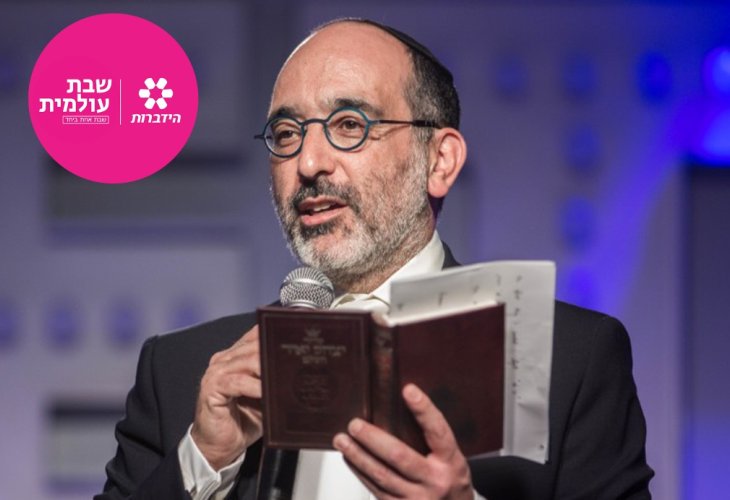Shabbat
Rabbi Warren Goldstein: The Visionary Behind the Shabbat Project
How South Africa’s Chief Rabbi Warren Goldstein Blends Torah, Human Rights, and National Impact
 Rabbi Dr. Warren Goldstein
Rabbi Dr. Warren GoldsteinA Spiritual Leader with a Public Conscience
South Africa’s Chief Rabbi, Rabbi Warren Goldstein, wears many hats. In addition to overseeing kosher certification, leading prayer services, and promoting Torah study, he is a vocal advocate on issues of public concern, including corruption, poverty, racism, crime, and antisemitism.
Central to his philosophy is the idea that Jewish values should guide not only private lives but also public discourse. His book, Defending the Human Spirit: Jewish Law’s Vision for a Moral Society, lays out this thesis, emphasizing the global relevance of Jewish ethics, compassion, and family values.
“As a religious leader, you must speak out against corruption and injustice,” says Rabbi Goldstein. “The values of the Torah—honesty, integrity, and moral clarity—demand it. A rabbi can’t stay confined to his community while the world contradicts those values. A leader must take initiative and bring the light of Torah to society at large.”
Human rights are at the heart of Rabbi Goldstein’s mission. He has marched alongside South Africa’s Black communities for equal rights, led protests against former President Jacob Zuma’s corruption under the banner “Let Our People Go,” and partnered with the Ministry of Education to launch a nationwide “Bill of Responsibilities” that promotes compassion, accountability, and mutual respect in schools. These values also forged a deep connection between Rabbi Goldstein and Nelson Mandela, whose funeral he addressed with a widely publicized and moving eulogy.
From Combating Crime to Studying Talmud with the President
One of Rabbi Goldstein’s most impactful initiatives is the founding of CAP (Community Active Protection), an organization designed to drastically reduce crime in Johannesburg. Focusing not only on private property but also on safeguarding public spaces, CAP operates a full-fledged security system with 24/7 patrols, an emergency hotline that handles 20,000 calls a month, legal and investigative departments, and data analysts. This massive infrastructure now protects around 250,000 residents and has significantly reduced crime in the region.
“Crime causes human suffering,” he explains. “The most basic right of every person is to feel free and safe. A rabbi’s job is not only to teach Torah. It's to care for people and protect their rights. Without personal security, nothing else can truly flourish.”
Rabbi Goldstein is also active in South African politics. Just as he vocally opposed President Zuma for corruption, he has publicly supported current President Cyril Ramaphosa, whom he considers a man of integrity. During a visit to the president’s residence, Rabbi Goldstein brought a volume of the Talmud and studied the passage that teaches a doctor needs permission from the Creator to heal, highlighting the Jewish view that humans are partners with the Divine in improving the world.
In a public speech afterward, he reaffirmed the Jewish community’s commitment to working with the government in all aspects of national life. He also voiced his unwavering support for Israel: “We want you to know, Mr. President, that alongside our deep love for South Africa, we also cherish and identify with the State of Israel. It is the land promised to our ancestors, and ever since Joshua led us into it, there has been a continuous Jewish presence there. We are proud to witness the modern restoration of Jewish sovereignty. It is a fulfillment of a Divine promise and essential to our survival.”
His remarks were met with enthusiastic applause.
Fighting Injustice with Faith and Courage
As someone who witnessed apartheid firsthand, Rabbi Goldstein finds the comparison between Israel and apartheid South Africa offensive and dangerous. “The analogy is shocking,” he says. “It’s a blood libel against Israel and a deep insult to the real victims of apartheid. It trivializes the issue.”
With a doctorate in law and a specialization in human rights, Rabbi Goldstein inherited his passion for justice from his father, a judge deeply involved in the anti-apartheid struggle. He recalls a childhood memory in Cape Town: “I was just ten years old. I saw a black man sitting quietly on the sidewalk. A policeman came over and shouted at him for no reason. That feeling of helplessness to intervene has stayed with me ever since.”
He makes it clear that the Israeli-Palestinian conflict is a territorial dispute, not a racial one. “This is a complex issue about land, not race. I speak regularly around the world on this subject and push back against these absurd accusations.”
Rabbi Warren Goldstein is not just a rabbi. He is a bridge between Torah and the world, a voice for morality, justice, and Jewish pride on the global stage.

